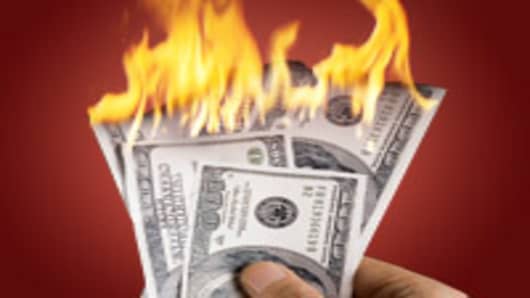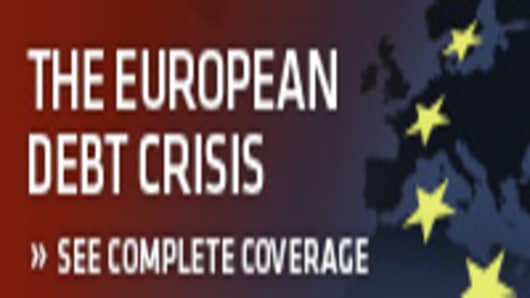Carthaginian peace refers to the imposition of a very brutal “peace,” or the armistice imposed on Carthage by Rome that saw the Romans systematically burn Carthage to the ground.
Sean Corrigan, chief investment strategist at Diapason Commodities Management, in Geneva has drawn parallels with that historic event and the euro-zone rescue package that has seen German taxpayers asked to put up enough cash to buy “one medium sized car for every tax payer in the country.”
In return for this cash, the sinners are being forced into severe austerity programs that will indeed be brutal for those on the losing side such as Greek pensioners and Portuguese public sector workers, Corrigan said..
And the euro-zone rescue package has led to less bad European Union governments backing the really bad ones, he said.
“Dutch taxpayers are now asked to service the obligations of their Portuguese counterparts,” Corrigan said.
“With the IMF involved so too are taxpayers in Vietnam, Venezuela and California.” The bailout has significantly reduced the chances of a credit event, but the prospect of a “currency event” remains significant, he said.
Gold has soared in recent days as investors look at the “relative quality of the alternatives,” he added.
Band-Aid Policy
“This is once more an example of the sticking plaster approach to medicine,” he said.
“It may well scare out the ‘evil short-sellers’ who, naturally, are the ones to blame for the situation in the eyes of the Jacobin political elite at least, but it does nothing to restore the recipient nations either to budget balance or to international competitiveness.” For policy, this is likely to mean a complete reverse of Reganomics.
“Recent events have put set in motion a move to tighter fiscal policy and, backed by a looser monetary stance and many are supposing this will imply lower real interest rates and hence weaker currencies,” Corrigan said.
Obviously not everyone can have a weaker currency.
“What currency is the pound going to have a crisis against?” said David Bloom, who runs the foreign exchange team at HSBC in London.
“The euro? The Yen? The Dollar?” What Is the Trade? Those who are buying gold on the belief that the euro is a one-way bet lower may be disappointed, Corrigan said.
“The break of the recent low could easily see another lurch lower of 5 percent or so but it may no longer be such a one way bet,” he added.
“The repeated pattern of the last five years is that gold tends to make moves of at least 20 percent to new highs, then drop back to the old high, gathers its strength again, then burst out anew,” he said.
“It may be premature to call the top but it would not hurt for those riding the wave to position a suitable stop loss.”




